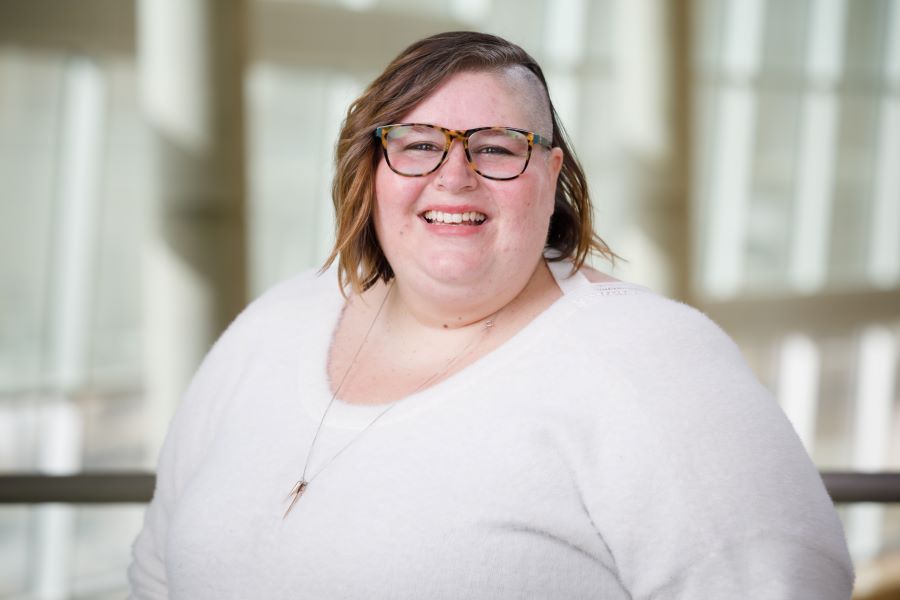Blood Banking & Transfusion Medicine Fellowship
From the Director
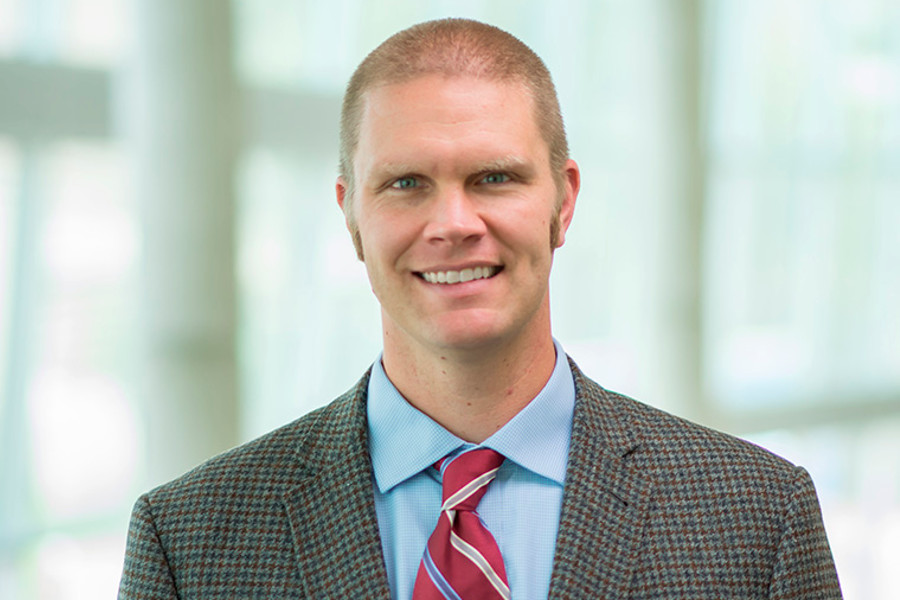
Scott Koepsell, MD, PhD
The rapid advances in cellular therapy and the introduction of personalized molecular medicine in blood banking are two examples that make our role in Transfusion Medicine even more vital.
My team and I are excited to work with the next generation of health care leaders in this space to train and educate experts who can leave our program and provide clinical care and consultation in any health care setting in the areas of Transfusion Medicine, Cellular Therapy, Apheresis, Blood Banking, Coagulation, and Clinical Pathology leadership.
Key Details
- Nebraska Medicine Blood Bank: Provides more than 30,000 blood products annually to support a Level 1 trauma center, a busy maternal fetal medicine program, and large solid-organ and hematopoietic progenitor cell transplant programs.
- Nebraska Medicine Apheresis: Transfusion Medicine faculty and fellows provide all the patient care activities and oversight for both therapeutic and donor apheresis for both adult and pediatric patients. The annual procedure volumes include approximately 1,100 plasma exchanges, 325 red blood cell exchanges, 600 photopheresis procedures, 125 hematopoietic progenitor cell collections, and 70 mononuclear cell collections for CAR-T.
- Nebraska Medicine Biologic Production Facility: A 12,000- square-foot facility with clean room space that is cGTP and cGMP compliant. The facility provides key aspects of cellular therapy processing and manufacture including plasma reduction, buffy coat enrichment, RBC reduction, CD34 cellular selection, T and/or B-cell reduction, cryopreservation, cord blood washing, dendritic cell vaccine manufacturing, alpha/beta depletion, cellular culture, trans-gene expression, electroporation, and viral vector production.
- Nebraska Medicine Coagulation Laboratory: Given the key relationship between coagulation testing and blood product support for patients, the Transfusion Medicine faculty and fellows provide medical direction of laboratory testing including interpretation and selection of tests as well as recommendations for blood product support.
The fellow also rotates in the HLA laboratory and participates in weekly clinical laboratory management activities to provide example-based education in laboratory leadership that includes personnel management, equipment management, budgeting, compliance, and resource management.
For Potential Applicants
Requirements
Applicants for the Blood Banking and Transfusion Medicine fellowship program must meet one of the following:
- Successful completion of at least two years of clinical pathology education in pathology residency program that satisfies the requirements in III.A.1 Common Program Requirements (acgme.org).
- Certification or eligibility for certification by the ABPath or American Osteopathic Board of Pathology in anatomic pathology or in clinical pathology.
- Certification or eligibility for certification by a member board of the American Board of Medical Specialties or a certifying board of the American Osteopathic Association in specialty or subspeciality deemed eligible for certification in blood banking/transfusion medicine by the ABPath. A list of those certifications are: ABA (Applied Behavior Analysis), ABCRS (American Board of Colon and Rectal Surgery), ABIM (American Board of Internal Medicine), ABNS (American Board of Neurological Surgery), ABOG (American Board of Obstetrics and Gynecology), ABOS (American Board of Orthopaedic Surgery), ABP (American Board of Pediatrics), ABPS (American Board of Physician Specialties), ABS (American Board of Surgery), ABTS (America Board of Thoracic Surgery), or a subspeciality in Hematology from any ABMS Member Board.
How to Apply
We are accepting applications for the 2025-2026 and 2026-2027 academic years.
Applicants must submit a complete application package to Dani Blum. The package includes the CAP standardized fellowship application form, a curriculum vitae, personal statement, United States Medical Licensing Examination summary sheet showing results (parts 1, 2 and 3), AP/CP board certification (if applicable), dean's letter, medical school transcript, medical school diploma and three letters of recommendation. The personal statement should include a brief overview of the applicant's interest, related experiences, and long-term career goals. The three letters of recommendation should include one letter from the current program director, and two from other physicians or graduate advisors who know the applicant well. International medical graduates must also submit a copy of a valid Educational Commission for Foreign Medical Graduates certificate.
More Details
The fellow will participate in seven, four-week core rotations in transfusion medicine that cover blood banking and apheresis; a four-week rotation dedicated to coagulation; up to eight weeks on dedicated cellular therapy rotations; two weeks with human leukocyte antigen rotation; an offsite two-week rotation at Innovative Blood resources to experience donor collection activities; and up to eight weeks of elective time to focus the fellow’s skills in an area of interest.
- Transfusion Service didactics
- Grand Rounds
- Fellowship Journal Club
- Transfusion Service Operations
- Biologic Production Facility Operations
- Apheresis Operations
- Clinical Laboratory Leadership Meeting
The Department of Pathology, Microbiology and Immunology provides an attractive and nationally competitive salary and benefits package. Details of the salary, benefits, and support network can be found at the College of Medicine's Graduate Medical Education.
Our department provides additional support to fellows:
- $1,000 professional development allowance per fellow for the support of academic books, board examinations and continuing education.
-
Fellows are encouraged and supported by the department to present at scientific meetings. The department funds up to $2,500 in travel to professional meetings where the fellow presents their research.
- Perks:
- $10 per day meal card
- Close, covered, convenient parking
- A UNMC identified lab coat and a set of black scrubs
- Access to Immunoquery, ExpertPath and PathPrimer; ASCP-Rise study sets; WHO series; and Biorender
UNMC, and its hospital partner, Nebraska Medicine, are home to the NCI-Designated Fred and Pamela Buffett Cancer Center, Munroe-Meyer Institute for Genetics and Rehabilitation, Lied Transplant Center, Michael F. Sorrell Center for Health Science Education and Nebraska Public Health Laboratory, which will provide enhanced experiences in blood banking and transfusion training.
Being part of such a growing and innovative campus, we can offer our house officers state-of-the-art facilities and resources. In our department alone, we have 23 primary research laboratories, lead 10 shared resource cores across campus, and direct two University of Nebraska-designated research centers. In addition to the departmental library, the McGoogan Health Sciences Library on campus has over 175,000 books and 2,400 journals. These facilities and resources are available for all of our fellows to provide them with a varied and extensive training experience.
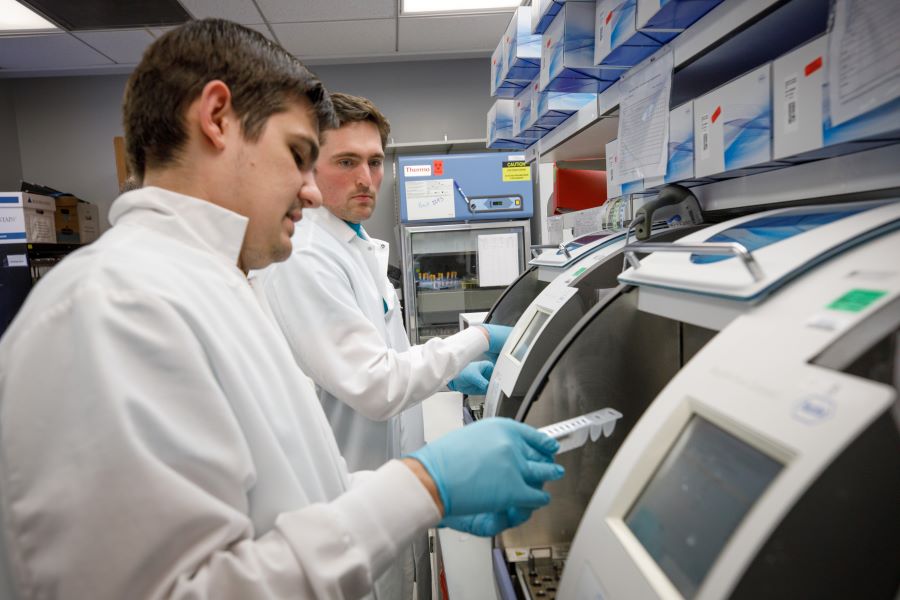
Biological Production Facility
Trainees get hands-on experience in our biological production facility on the UNMC campus.
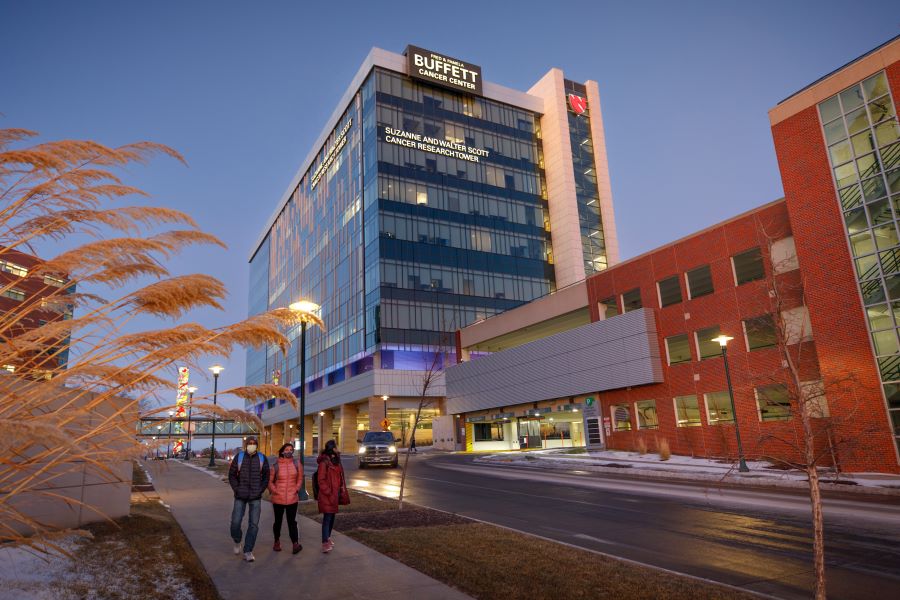
Nebraska Medicine Apheresis Unit
Come take a tour of the Apheresis Unit at Nebraska Medicine.
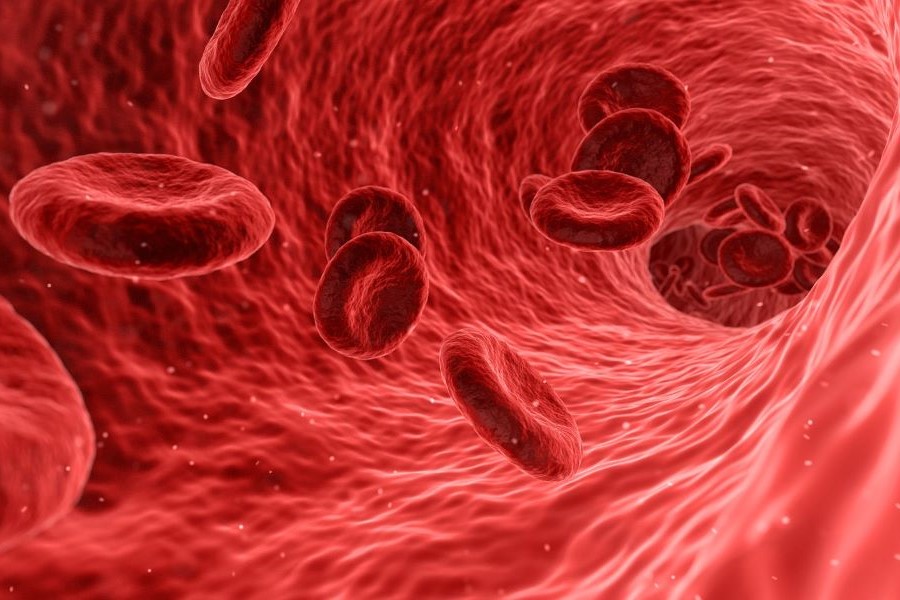
Blood Banking & Transfusion Medicine Fellowship Available Now
We are accepting applications for the 2025-2026 academic year.
